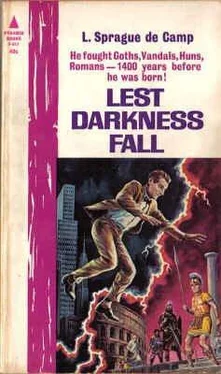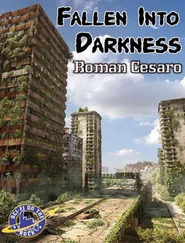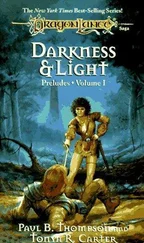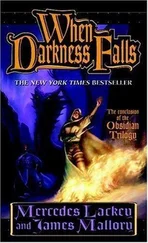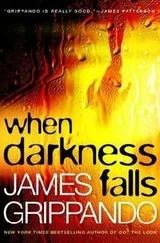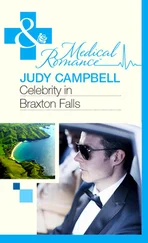A PYRAMID BOOK
Published by arrangement with the Author
PRINTING HISTORY
Henry Holt and Company edition published 1941 Prime Press edition published 1949 Pyramid edition published February 1963 Second printing August 1969
This story in a shorter version, appeared in the December, 1939 issue of Unknown.
Copyright, 1939, by Street & Smith Publications, Inc. Copyright, 1941, by Henry Holt and Company, Inc. Copyright, 1949, by L. Sprague de Camp
All Rights Reserved
Printed in the United States of America
PYRAMID BOOKS are published by Pyramid Publications, Inc. 444 Madison Avenue, New York, New York 10022, U.S.A.
Tanchedi took his hands off the wheel again and waved them. "—so I envy you, Dr. Padway. Here in Rome we have still some work to do. But pah! It is all filling in little gaps. Nothing big, nothing new. And restoration work. Building contractor's work. Again, pah!"
"Professor Tancredi," said Martin Padway patiently, "as I said, I am not a doctor. I hope to be one soon, if I can get a thesis out of this Lebanon dig." Being himself the most cautious of drivers, his knuckles were white from gripping the side of the little Fiat, and his right foot ached from trying to shove it through the floor boards.
Tancredi snatched the wheel in time to avoid a lordly Isotta by the thickness of a razor blade. The Isotta went its way thinking dark thoughts. "Oh, what is the difference? Here everybody is a doctor, whether he is or not, if you understand me. And such a smart young man as you—What was I talking about?"
"That depends." Padway closed his eyes as a pedestrian just escaped destruction. "You were talking about Etruscan inscriptions, and then about the nature of time, and then about Roman archaeol—"
"Ah, yes, the nature of time. This is just a silly idea of mine, you understand. I was saying all these people who just disappear, they have slipped back down the suitcase."
"The what?"
"The trunk, I mean. The trunk of the tree of time. When they stop slipping, they are back in some former time. But as soon as they do anything, they change all subsequent history."
"Sounds like a paradox," said Padway.
"No-o. The trunk continues to exist. But a new branch starts out where they come to rest. It has to, otherwise we would all disappear, because history would have changed and our parents might not have met."
"That's a thought," said Padway. "It's bad enough knowing the sun might become a nova, but if we're also likely to vanish because somebody has gone back to the twelfth century and stirred things up—"
"No. That has never happened. We have never vanished, that is. You see, doctor? We continue to exist, but another history has been started. Perhaps there are many such, all existing somewhere. Maybe, they aren't much different from ours. Maybe the man comes to rest in the middle of the ocean. So what? The fish eat him, and things go on as before. Or they think he is mad, and shut him up or kill him. Again, not much difference. But suppose he becomes a king or a duce? What then?
"Presto, we have a new history! History is a four-dimensional web. It is a tough web. But it has weak points. The junction places—the focal points, one might say—are weak. The back-slipping, if it happens, would happen at these places."
"What do you mean by focal points?" asked Padway. It sounded to him like polysyllabic nonsense.
"Oh, places like Rome, where the world-lines of many famous events intersect. Or Istanbul. Or Babylon. You remember that archaeologist, Skrzetuski, who disappeared at Babylon in 1936?"
"I thought he was killed by some Arab holdup men."
"Ah. They never found his body! Now, Rome may soon again be the intersection point of great events. That means the web is weakening again here."
"I hope they don't bomb the Forum," said Padway.
"Oh, nothing like that. Our Duce is much too clever to get us into a real war. But let us not talk politics. The web, as I say, is tough. If a man did slip back, it would take a terrible lot of work to distort it. Like a fly in a spider web that fills a room."
"Pleasant thought," said Padway.
"Is it not, though?" Tancredi turned to grin at him, then trod frantically on the brake. The Italian leaned out and showered a pedestrian with curses.
He turned back to Padway. "Are you coming to my house for dinner tomorrow?"
"Wh-what? Why yes, I'll be glad to. I'm sailing next—"
"Si, si. I will show you the equations I have worked out. Energy must be conserved, even in changing one's time. But nothing of this to my colleagues, please. You understand." The sallow little man took his hands off the wheel to wag both forefingers at Padway. "It is a harmless eccentricity. But one's professional reputation must not suffer."
"Eek!" said Padway.
Tancredi jammed on the brake and skidded to a stop behind a truck halted at the intersection of the Via del Mare and the Piazza Aracoeli. "What was I talking about?" he asked.
"Harmless eccentricities," said Padway. He felt like adding that Professor Tancredi's driving ranked among his less harmless ones. But the man had been very kind to him.
"Ah, yes. Things get out, and people talk. Archaeologists talk even worse than most people. Are you married?"
"What?" Padway felt he should have gotten used to this sort of thing by now. He hadn't. "Why—yes."
"Good. Bring your wife along." It was a surprising invitation for an Italian to issue.
"She's back in Chicago." Padway didn't feel like explaining that he and his wife had been separated for over a year.
He could see, now, that it hadn't been entirely Betty's fault. To a person of her background and tastes he must have seemed pretty impossible: a man who danced badly, refused to play bridge, and whose idea of fun was to get a few similar creatures in for an evening of heavy talk on the future of capitalism and the love life of the bullfrog. At first she had been thrilled by the idea of traveling in far places, but one taste of living in a tent and watching her husband mutter over the inscriptions on potsherds had cured that.
And he wasn't much to look at—rather small, with outsize nose and ears and a diffident manner. At college they had called him Mouse Padway. Oh, well, a man in exploratory work was a fool to marry, anyway. Just look at the divorce rate among them—anthropologists, paleontologists, and such—
"Could you drop me at the Pantheon?" he asked. "I've never examined it closely, and it's just a couple of blocks to my hotel."
"Yes, doctor, though I am afraid you will get wet. It looks like rain, does it not?"
"That's all right. This coat will shed water."
Tancredi shrugged. They bucketed down the Corso Vittorio Emanuele and screeched around the corner into the Via Cestari. Padway got out at the Piazza del Pantheon, and Tancredi departed, waving both arms and shouting: "Tomorrow at eight, then? Si, fine."
Padway looked at the building for a few minutes. He had always thought it a very ugly one, with the Corinthian front stuck on the brick rotunda. Of course that great concrete dome had taken some engineering, considering when it had been erected. Then he had to jump to avoid being spattered as a man in a Fascist uniform tore by on a motorcycle.
Padway walked over to the portico, round which clustered men engaged in the national sport of loitering. One of the things that he liked about Italy was that here he was, by comparison, a fairly tall man. Thunder rumbled behind him, and a raindrop struck his hand. He began to take long steps. Even if his trench coat would shed water, he didn't want his new fifty-lire Borsalino soaked. He liked that hat.
Читать дальше
